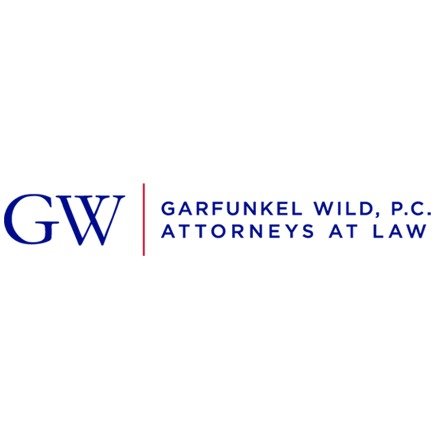Best Contract Lawyers in New York
Share your needs with us, get contacted by law firms.
Free. Takes 2 min.
Or refine your search by selecting a city:
List of the best lawyers in New York, United States
United States Contract Legal Questions answered by Lawyers
Browse our 1 legal question about Contract in United States and read the lawyer answers, or ask your own questions for free.
- What's the fee for reviewing a Home purchase contract.
- How much is your fee for looking over a contract on the house I am about to purchase.
-
Lawyer answer by US Legal Group 美国法律集团律师事务所
Hi. Thank you for reaching out to us regarding your upcoming property purchase. As a combined China & U.S. law firm, we specialize in real estate transactions and are well-equipped to review your contract.To provide you with a precise quote,...
Read full answer
About Contract Law in New York, United States
Contract law in New York governs the creation, performance, and enforcement of agreements between two or more parties. A contract is a legally binding agreement that requires an offer, acceptance, consideration (something of value exchanged), and mutual intent to be bound. New York has a long-standing reputation for upholding contracts according to their written terms, and its courts are frequently selected as venues in business and commercial contract disputes. Contract law in New York is regulated by common law principles as well as specific statutes such as the New York General Obligations Law and the Uniform Commercial Code, which applies to transactions involving the sale of goods.
Why You May Need a Lawyer
Many individuals and businesses seek legal help with contracts in several situations. Common scenarios include:
- Drafting a new contract to ensure it is enforceable and reflects your intentions
- Reviewing a contract before you sign, to understand your rights and obligations
- Negotiating contract terms with another party
- Addressing a breach of contract, whether you are accused of breaching or are impacted by another party's failure to fulfill obligations
- Enforcing contract terms through litigation or alternative dispute resolution
- Rescinding or modifying an existing contract
- Interpreting ambiguous or complex contract language
- Ensuring compliance with state-specific laws, especially in commercial and real estate contracts
An attorney can help you avoid costly mistakes, clarify your legal standing, and protect your interests throughout the contract process.
Local Laws Overview
New York contract law has several important features for individuals and businesses to consider:
- Statute of Frauds: Certain contracts must be in writing to be enforceable in New York, such as agreements for the sale of real estate, contracts that cannot be performed within one year, and sale of goods worth $500 or more.
- Freedom of Contract: New York generally allows parties broad freedom to negotiate and agree to their own contract terms, except where prohibited by law.
- No Consideration for Modifications in Some Cases: Under the General Obligations Law, certain contract modifications do not require additional consideration if put in writing and signed.
- Choice of Law and Forum: New York courts often respect provisions stating that New York law applies and that disputes will be resolved in New York courts.
- Uniform Commercial Code (UCC): The UCC applies to commercial transactions, especially those involving the sale of goods, providing standardized rules for offers, acceptances, and performance.
- Remedies and Damages: New York law recognizes remedies such as specific performance, compensatory damages, and, in limited cases, punitive damages.
- Breach of Contract: If one party does not fulfill its contractual obligations, the non-breaching party may be entitled to damages or other legal remedies.
Understanding these local nuances is crucial for protecting your rights in contractual relationships.
Frequently Asked Questions
What makes a contract legally binding in New York?
A contract is legally binding if it includes an offer, acceptance, consideration, and mutual intent to be bound. Both parties must be competent and the contract must not be for an illegal purpose.
Does a contract need to be in writing to be enforceable?
Not all contracts must be in writing, but certain types, such as those involving real estate or that cannot be performed within one year, are subject to the Statute of Frauds and must be written.
What happens if a contract is breached in New York?
The non-breaching party may be entitled to remedies such as monetary damages, specific performance (ordering the breaching party to fulfill their obligations), or cancellation of the contract.
What is "consideration" under New York law?
Consideration is something of value exchanged by both parties, such as money, services, or a promise to act or refrain from acting. It is required for a contract to be valid.
How long do I have to bring a lawsuit for breach of contract?
Generally, the statute of limitations for breach of contract in New York is six years from the date of the breach, but this can vary with the type of contract.
Can I cancel a contract after signing it?
Usually, you cannot unilaterally cancel a contract unless the contract allows for cancellation, there is a legal reason such as fraud or duress, or the other party has breached.
Are verbal agreements enforceable in New York?
Verbal agreements may be enforceable if they meet contract requirements, except when required by law to be in writing. Proving the terms of an oral contract can be more challenging.
What are liquidated damages clauses and are they enforceable?
Liquidated damages are pre-agreed sums to be paid in case of breach. New York courts will enforce them if they are a reasonable estimate of actual damages and not a penalty.
How can I protect myself before signing a contract?
Review the contract thoroughly, understand your obligations, clarify ambiguous terms, and consult a lawyer to ensure your interests are protected.
What should I do if I am accused of breaching a contract?
Contact a qualified attorney as soon as possible to review the contract terms, assess your defenses, and discuss the best course of action.
Additional Resources
If you need further information or assistance with contracts in New York, consider reaching out to the following organizations:
- New York State Bar Association - Resources and lawyer referral services
- New York Courts - Information on small claims and civil courts
- New York Attorney General’s Office - Consumer protection and contract dispute resources
- Local Legal Aid Organizations - Free or low-cost legal assistance for those who qualify
- Public Libraries - Many have self-help legal materials and guides on contract law
Next Steps
If you believe you need legal assistance with a contract issue in New York, the best next steps are:
- Gather all relevant documents, including drafts, signed copies, communications, and notes related to the contract.
- Write down a timeline or summary of events so you can clearly explain your situation to a lawyer.
- Contact a qualified attorney who specializes in contract law in New York. Many offer initial consultations to discuss your matter and recommend solutions.
- If cost is an obstacle, ask about payment options or seek help from legal aid organizations.
- Act promptly, as waiting too long could impact your legal rights due to statutes of limitations or changes in circumstances.
Taking these steps can help ensure you protect your rights and make informed decisions regarding contractual matters in New York.
Lawzana helps you find the best lawyers and law firms in New York through a curated and pre-screened list of qualified legal professionals. Our platform offers rankings and detailed profiles of attorneys and law firms, allowing you to compare based on practice areas, including Contract, experience, and client feedback.
Each profile includes a description of the firm's areas of practice, client reviews, team members and partners, year of establishment, spoken languages, office locations, contact information, social media presence, and any published articles or resources. Most firms on our platform speak English and are experienced in both local and international legal matters.
Get a quote from top-rated law firms in New York, United States — quickly, securely, and without unnecessary hassle.
Disclaimer:
The information provided on this page is for general informational purposes only and does not constitute legal advice. While we strive to ensure the accuracy and relevance of the content, legal information may change over time, and interpretations of the law can vary. You should always consult with a qualified legal professional for advice specific to your situation.
We disclaim all liability for actions taken or not taken based on the content of this page. If you believe any information is incorrect or outdated, please contact us, and we will review and update it where appropriate.
Browse contract law firms by city in New York
Refine your search by selecting a city.

















